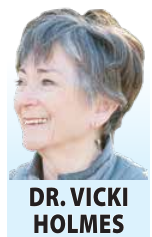
Ageism is defined as the stereotypes, prejudice and discrimination towards others or oneself based on age. It may also interact with other attitudes toward people based on race and disability. There are four types of ageism: Personal; Institutional (policies); Intentional; Unintentional. Personal ageism: We do this to ourselves when we use negative selftalk. In cultures such as Japan, where the elderly are respected, this is not such a problem. Dr. Becca Levy, an epidemiologist from Yale, found that people who had negative age beliefs tended to have worse physical, cognitive and mental health issues than those who had positive beliefs. Perhaps this is related to unnecessary stress that these beliefs create, but they were also less likely to adopt healthy behaviours such as exercising. They actually had higher risks of dementia, heart disease, diabetes, musculoskeletal disorders and injuries. (The Gerontologist Vol. 69, No.1, 2020)
Avoiding isolation: Having contact with people of all ages, and establishing a fitness routine can all be helpful in avoiding negative thoughts. Our universities make it affordable to audit university classes. For example, a $5 membership with Saskatoon Seniors Continued Learning Inc. allows you to take a class in the College of Arts and Sciences for $60, either in person or online. Studies have shown some good things about growing older. Some artists and musicians become more creative and generative as they get older. When you listen to Joni Mitchel’s recent performances, you realize that despite all her ailments, she still has “it!” Some studies show that middle age and older are better at orienting their attention and ignoring distractions. They can be better at regulating emotions and have greater social maturity. The paradox of aging is “when older people tend to report greater life satisfaction and happiness.” Dr. David Blanchflower used amazing AI techniques to review data from 145 countries, finding that happiness sinks to a low at middle age but then rises with age!
How does this play out in health care? Studies that have been done on all healthcare providers — physicians, nurses, social workers and psychologists — found ageism is a significant problem. Efforts are now being made to change this problem, and the growing number of elderly makes this increasingly important. I always felt that it takes a team to care for the extreme elderly and would invite them to bring a team member in for appointments. It is so important to avoid “Elder Speak,” a demeaning manner of speech, high pitched, slow, with overly familiar terms of endearment. It is very easy to slip into explaining to the daughter/son who is accompanying the patient rather than addressing the person requiring help. Institutional ageism involves policies which have been developed to avoid unnecessary treatment when there is little chance of benefit. However, this is hard to define. Doctors face ethical dilemmas frequently regarding compassionate care versus intervention, longevity vs quality of life, cost vs benefit. It can be difficult when attitudes of ageism creep into that decision. Studies have shown that older people with lung cancer are less often referred for surgery despite evidence that they do just as well as younger people. There are many other examples.
Intentional ageism is when policies of age restriction are applied, despite the individual’s state of health. When I was 62, I experienced my first ageist response when I fell and tore ligaments in my wrist. I was told if I was younger they would repair it, so I was given no treatment. It angered me quite a bit since I was still doing lots of obstetrics, where the outcome for a baby who might need vacuum or forceps-assisted delivery counted on me being strong enough to deliver them. Fortunately, I have a high pain threshold and did not have any dire consequences other than pain and some weakness.
There can also be regional differences in treatment. For example, if you have a torn hip labrum and are in your 70s, you will not get arthroscopic repair in Saskatoon, but if you are in Detroit it is done regularly. Unintentional ageism, I feel it is important to give feedback to your caregivers when you encounter unintentional patronizing behaviour. My sister would respectfully give caretakers feedback on how their words and demeanor were inappropriate. We all must do that to effect change. What can you do to receive appropriate care?
Be prepared when you go to appointments. Carefully write down significant events and time that relate to your problem, and try to remember your past history or family history that may be relevant. Do a little research about your condition. Wear your hearing aids so you can hear adequately. Take someone with you if you are afraid that you won’t understand of remember important instructions. Be your own advocate and if you don’t feel you can do that bring someone who can help you.
Dr. Vicki Holmes is a Saskatoon retired family physician who has a special interest in Palliative Care and Women’s Health. She is passionate about sharing medical information with the public! (Vicki’s Photo: Memories by Mandy)
-Dr Vicki Holmes

Leave a Reply